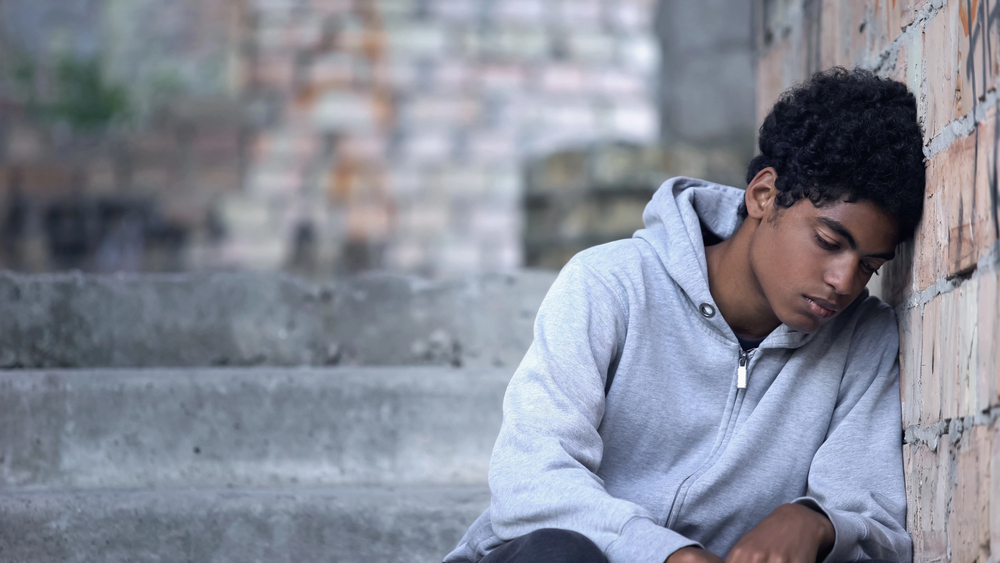A 17-year longitudinal study published in Epidemiology and Psychiatric Sciences has found that adolescents with low socioeconomic status (SES) face significantly higher risks of mental health challenges well into adulthood.
Led by Christine Leonhard Birk Sørensen of Gødstrup Hospital in Denmark, the research reveals strong associations between adolescent poverty and long-term depressive symptoms, higher rates of psychiatric diagnoses, and increased use of psychotropic medications.
“Individuals with a low SES at age 15 years, measured by SSS school, SSS society, household income and parental educational level showed higher mean depressive symptoms, a higher prevalence of medication use and a higher cumulative incidence of mental disorder diagnosis through adolescence and adulthood (age 15–32 years),” the authors write.
The findings draw attention to the profound and lasting effects of early social inequality, suggesting that subjective social status and psychosocial support in adolescence may be as critical to mental health as material deprivation. Being female, receiving a mental health diagnosis and/or psychotropic drug prescriptions during early adulthood, having low subjective social status (SSS) in school, lack of support from teachers/parents/classmates, having parents that lived separately, being bullied, and high pressure to perform well in school were all associated with worse depressive symptom trajectories. High SSS in society was linked to better depressive symptom trajectories.
The findings of this new Danish cohort study add to a growing body of evidence linking poverty and socioeconomic disadvantage to long-term psychological distress, psychiatric diagnoses, and poor treatment outcomes. Neurobiological research has found that poverty in childhood is associated with structural changes in the brain and an increase in behavioral problems during adolescence. Poverty also exerts a multigenerational impact, intensifying mental health problems in both parents and children and reinforcing cycles of psychological distress across the family unit. In the U.S., community-level poverty has been linked to increased youth suicide rates, raising urgent concerns about the cumulative burden of social deprivation on emotional well-being and survival. Moreover, studies show that upward economic mobility in childhood may reduce the risk of developing psychosis and bipolar disorder, suggesting that the effects of poverty on mental health are not fixed and can be mitigated through early intervention and policy reform.
Finally, even when care is available, individuals living in poverty are less likely to benefit from psychotherapy, pointing to the limitations of traditional mental health services when structural inequality goes unaddressed. Taken together, these studies reinforce the conclusion that mental health cannot be understood or improved without confronting the pervasive impact of poverty on human lives.
















“Depressive symptoms,” with supposed changes in brain functioning, in response to crushing poverty, high unemployment, widespread racism, environmental degradation, rampant disease, hunger, poor education, and other squalid conditions so prevalent in disadvantaged communities?
I would regard those so-called symptoms (yet one more example of medicalized language that implies an urgent need for professional “treatment” in the form of neurotoxins, intensive psychotherapy, etc.) not as signs of emotional illness or brain disorders, but as totally understandable, natural responses to extremely distressing, even life-threatening circumstances.
Why don’t clinicians and researchers shift their primary focus to the psychology and conduct of the persons and institutions responsible for the creation of the unjust, oppressive social and economic systems that give rise to the alleged pathology of victims? Could the notable lack of interest in this subject on the part of “mental health experts” possibly stem from the fact that their field willingly supports, colludes with, and often profits handsomely from the existence of those systems?
Report comment
Exactly! It seems those abused and neglected by the system get diagnosed, while the abusers are considered “normal!” Says a lot about where our society is at!
Report comment
All this reminds me of the “hoarding disorder” diagnosis applied to individuals who cling to material possessions as a way of allaying anxiety.
But people who amass untold amounts of wealth through dubious financial transactions or outright corruption (no need here to cite the obvious current examples) are celebrated by the powers that be as “job creators,” “innovators,” and other admirable paragons of business acumen. Shouldn’t they be diagnosed in the DSM as obsessive capital accumulators? Why aren’t they hauled off to the nearest mental hospital for compulsory treatment? The answer shouldn’t be difficult to guess…..
Report comment
Caffeine is a drug but since it’s “beneficial” to society it isn’t criminalized. It truly does say a lot about us.
Report comment
Shouldn’t we dismiss the DSM for what it is which is a fraud, which is full of morally bankrupt drug pushers for the Big Pharma industry. If you want a decent DSM we will need to rid ourselves of it and replace it with human kindness and it is in short supply with regard to the Big Pharma that controls the purse strings of the doctors that dole out psychotropics as if they are candy. It is a plague on all humans and it needs to be extinguished.
Report comment
There’s no money in doing it that way.
Report comment